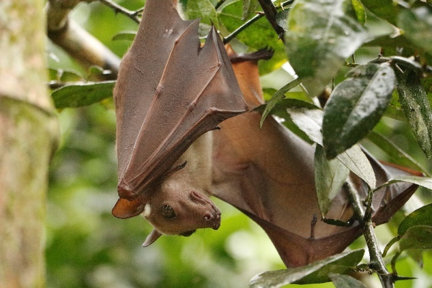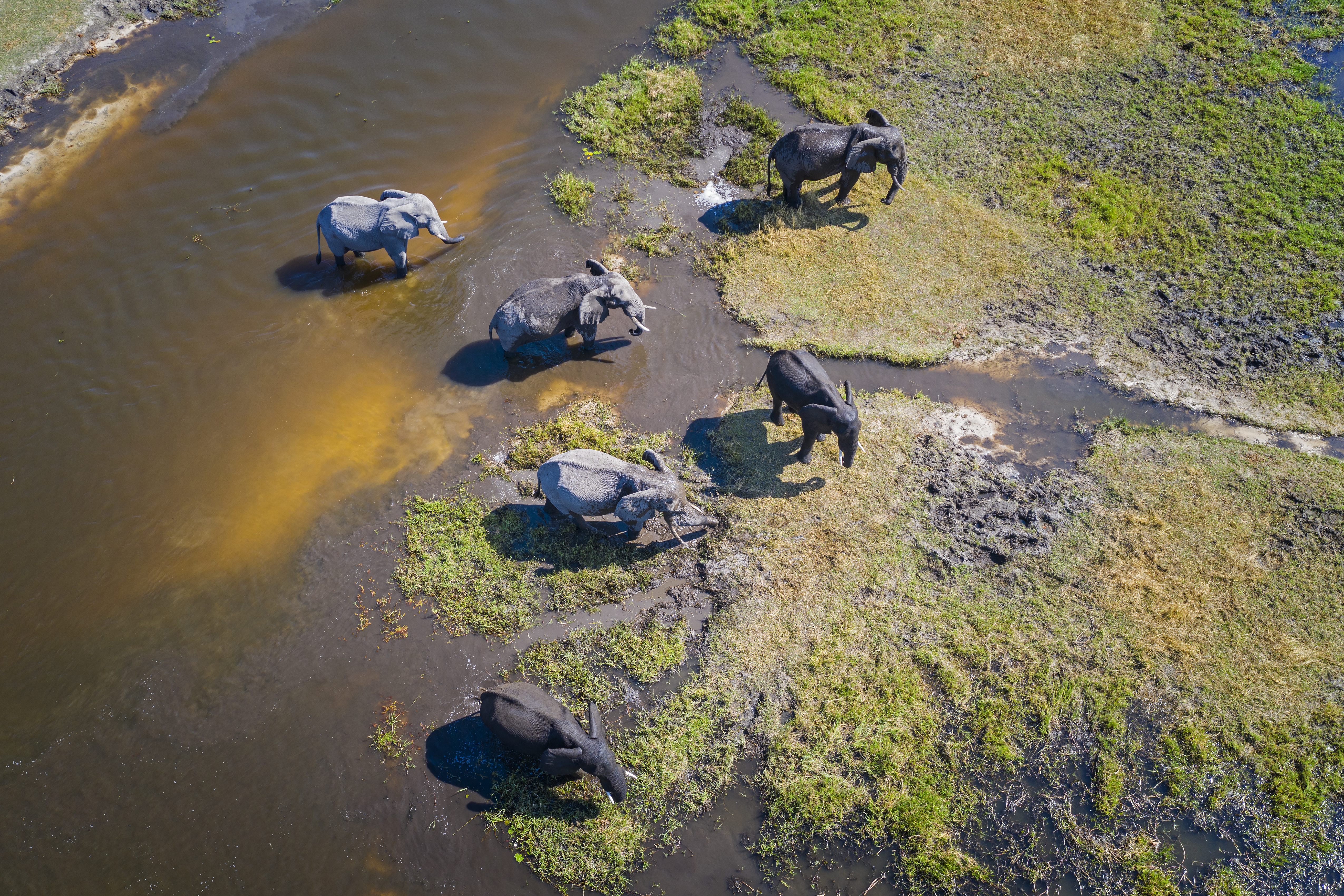
The transfer to WOAH of the Secretariat of the International Alliance against Health Risks in Wildlife Trade, previously hosted by Deutsche Gesellschaft für Internationale Zusammenarbeit (GIZ), is now in full swing. It will mark the first time that WOAH hosts the Alliance and a milestone in the Organisation’s journey towards ensuring wildlife health worldwide – for a better, healthier future.
Wildlife plays a unique role in the planet’s functioning and survival. From bees pollinating plants to predators keeping species populations in check and coral reefs locking carbon away, wildlife has been a life-sustaining ally to our Earth for generations, creating balanced ecosystems like no other.
WOAH recognises that the health of humans, animals – both wild and domestic – and ecosystems are inherently interdependent. To protect one, we need to protect all. The current hazard landscape, however, is complex and ever evolving, with illegal wildlife trade among the most worrying existential threats.
Against this backdrop, WOAH welcomes a new opportunity to reverberate its mission by offering Secretariat for the International Alliance against Health Risks in Wildlife Trade.
Infectious disease outbreaks and pandemics have showed the world their devastating potential. Recently with avian influenza we have experienced first-hand that viruses can evolve and adapt, ending up having unusual impacts on wild birds and even wild mammals – from foxes to seals.
However, this is far from the only risk drawing global concern. The threat of zoonotic spillover from wildlife remains dangerously overlooked. Wild mammals and birds alone are believed to harbour hundreds of thousands of as-yet-unknown viruses – many of which could potentially jump to humans.
Human-caused factors such as climate change, deforestation and wildlife trade play a significant role in driving the emergence of new diseases. Whether legal or illegal, wildlife trade can pose unique threats to species conservation – from domestic and wild animal health and welfare to ecosystems’ equilibriums and human health – at local and global scales. Indeed, in today’s complex societies, the risk of pathogen spillover, disease emergence and global spread are amplified by increased interaction between humans, wildlife and domestic animals. Legal and illegal wildlife trade represents one form of interaction.
Yet, the knowledge gaps on socio-cultural aspects of human-wildlife interaction as well as on pathogen spillover processes also mean that there is still significant potential to mitigate the risk of future spillovers. And this is exactly where the International Alliance against Health Risks in Wildlife Trade steps in. Taking a One Health approach, the Alliance forms a dynamic, interdisciplinary and inclusive multi-stakeholder platform that brings together various disciplines across the One Health spectrum to seek solutions to complex and pressing issues related to health risks in the trade of wild animal species.
Today, the Alliance counts on a network of more than 180 member organisations and 500 individuals. Drawing on diverse backgrounds, scientific expertise and local perspectives, the Alliance translates the commitment, knowledge and political will of its members into real-world impact by providing evidence-based consultation and guidance to government authorities, supporting and evaluating interventions on the ground and encouraging collaboration across disciplines, organisations and individuals on health risks in wildlife trade related matters.
The work of the Alliance focuses on two main areas. On the one hand, it is committed to substantially reducing the risks of zoonotic spillover. It does so by advancing responses – including behavioural changes – to human and animal health risks caused by direct and indirect contact with wildlife occurring along wildlife trade supply chains. On the other hand, it works on enhancing in-country and global awareness, knowledge and policies, with the goal of bridging the gap between science and implementation on wildlife trade. The several projects implemented by International Alliance member organisations, both funded by the Alliance and run independently, focus on a variety of topics – from the monitoring of the wildlife e-commerce landscape to assess global trends to the analysis of global health risks associated with wildlife products hunted and traded as “Bushmeat” in Nigeria.
During its chairmanship of the Alliance, GIZ consistently shared knowledge and raised awareness on health risks in wildlife trade in the context of One Health relying on interprofessional and multidisciplinary teams in a truly collegial and collaborative spirit. Thanks to its active and diverse membership, the Alliance was able to provide a platform for its members to exchange ideas and learn, while also helping governments implement policies to reduce health risks from wildlife trade.
Recognising their close links and interdependence, WOAH envisions a world where people, animals and their surrounding ecosystems coexist in a healthy manner and engage in mutually beneficial interactions. Safeguarding nature as a whole benefits species and their habitats, but it also lays the foundation for a more sustainable planet.
As an inter-governmental organisation, WOAH strongly believes that better animal, environmental and human health includes addressing the health risks associated with wildlife trade. It is in this vein that a recently published set of guidelines has shed a clarifying light on the hazard landscape and defined the needed steps in risk assessment, suggesting ways to minimise disease risk in wildlife trade. WOAH was also represented on the steering committee of the Alliance and an active Member of the network, contributing to two working groups.
The organisation is adamant that this new role as the Secretariat of the Alliance will allow for deeper connections between Veterinary Services – who are traditionally responsible for animal health – and the diverse pool of experts the Alliance is built upon. “This newly started chapter in our wildlife journey marks a milestone for WOAH and is something we take immense pride in. We live in a delicate ecosystem, whose functionality also relies on our action. These past years, WOAH has launched a Wildlife Health Framework, which reaffirms the responsibilities of Veterinary Services and provides them with tools and skills needed to fully address wildlife health issues and include wildlife health to routine activities”, says WOAH’s Director General Emmanuelle Soubeyran. “WOAH becoming the next host of the Secretariat highlights a strong overlap with the objectives of the Alliance and offers a unique opportunity to synergise efforts. This integration is key to building a more cohesive, effective system for safeguarding health across human, animal, and environment interfaces.”
The handover process of the Alliance began in January this year, with GIZ gradually transferring responsibilities to WOAH until 2026. This means that WOAH will take on a Secretariat role, while the governance of the Alliance will keep its member-driven, incubator and knowledge hub nature, with the opportunity to nurture a shared vision while also bringing new ideas to the table. Following in the steps of its predecessor GIZ, the organisation sees this opportunity as a powerful force in One Health, with the ultimate goal of improving health for all.
“We are very proud and excited about this new chapter in WOAH’s wildlife journey”, concludes Dr Soubeyran. “With its expertise on the wide spectrum of animal health, I am confident that the organisation will contribute to making Alliance Members output and results visible, meaningful and enduring, to help face the unforeseeable, shifting challenges of tomorrow“.
Dr Emmanuelle Soubeyran - WOAH DG


